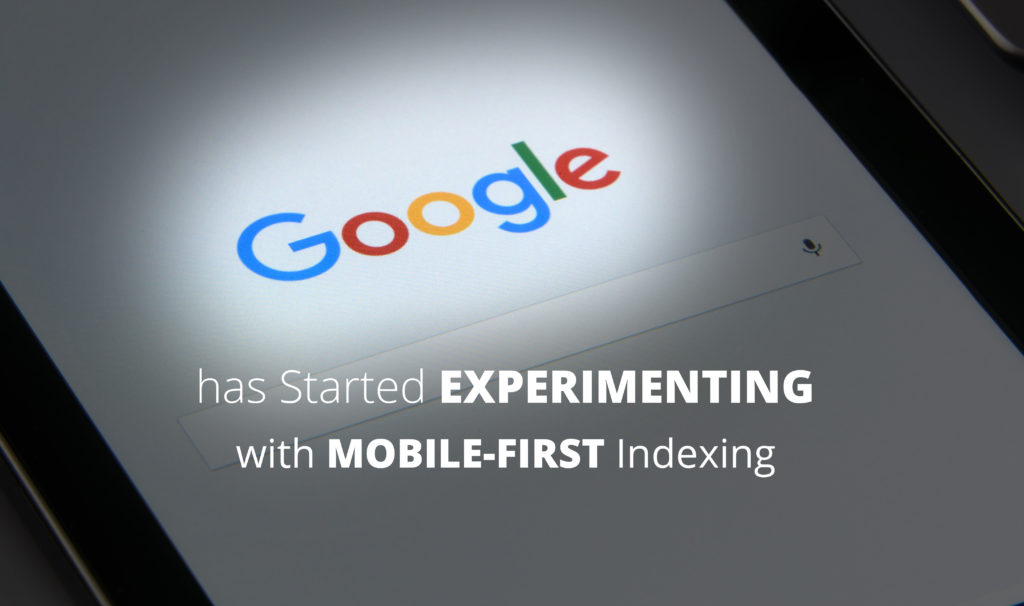Google Starts Experimenting With Mobile-First Indexing
Nowadays, majority of people looking up stuff on Google (or on their preferred search engine) use their mobile devices first and their desktop computers second. Google has announced that they have begun testing on a mobile-first search index. What this means is that Google’s index will prioritize crawling their mobile index to understand how or why a content should be indexed in search. So why is this significant?
Google’s original indexing habits revolved around crawling web pages designed for desktop searching and then indexing them inside both the desktop and mobile search results index. The need to switch things up stems from the fact that people are now browsing for stuff using their mobile phones and when they view content using their mobile devices, chances are that these users are viewing fewer content as opposed to when they search using their desktop computers. This happens because Google’s algorithm isn’t actively evaluating the actual page that a person using mobile search will see.
The people at Google are referring to this move as an “experiment” and it is going to be continuously released on a smaller scale from now to several months in the future. When they deem the experiment a success as in Google is sufficiently satisfied that they are providing the best user search experience that they can, only then can the experiment be done on a much bigger scale, possibly with some adjustments or what have you. The possibilities are endless.
This move may seem sudden for some people and Google understands that. They released a list of suggestions that people can look over to prepare for the paradigm shift that is to come. Do note that while these changes are aimed towards webmasters, SEO specialists and other interested people are encouraged to read and understand these recommendations.
- Google says that if you have a responsive or dynamic serving site whose primary content and markup is the same between desktop and mobile then changes are unnecessary. This means that you’re fine and you should keep up the good work.
- On the other hand, if you have a site configuration where the primary content and markup is dissimilar from one another then you should definitely make some changes to your website.
- The best thing to do first is to ensure that your website can serve a structured mark-up for both the desktop and mobile versions of your website. The reason for this is that sites can actually verify the equivalence of their structured markup across desktop and mobile by inputting the URLs of both mobile and desktop versions into the Structured Data Testing Tool where you can then compare the output.Google also advised that in the event that you do add structured data to your mobile site then it is best to avoid adding a large amount of markup that is irrelevant to the specific information content of each document.
- The next good step to take is to use the robots.txt testing tool to ensure and verify that the mobile version of your website is accessible to Googlebot.
- Websites do not really have to make any changes to their canonical links as Google has stated that they will continue to use those links as guides to deliver the best or the most appropriate results to a user searching on both desktop or mobile.
- Webmasters should definitely verify the mobile version of their website in the Google Search Console if they have only verified their desktop site.
- Webmasters who only own a desktop site are fine and Google said that they will continue to index your website normally even if they are using a mobile user agent to view your website. TAKE NOTE: If you are in the middle of building a mobile version of your website, bear in mind that a functional desktop-optimized website can be better than an incomplete or broken mobile version of your website. It would be more prudent to simply build up your site and only launch it when it is ready.
These are exciting times because changes are coming and they’re coming in hot. What this means for webmasters and SEO specialists alike is that the things we know from before may not necessarily be as correct as they are tomorrow. This is exciting because it is an opportunity to learn new things while mastering the things that we already know. Let’s take this new journey of learning together.
Let’s discuss these changes in the comment box below!
